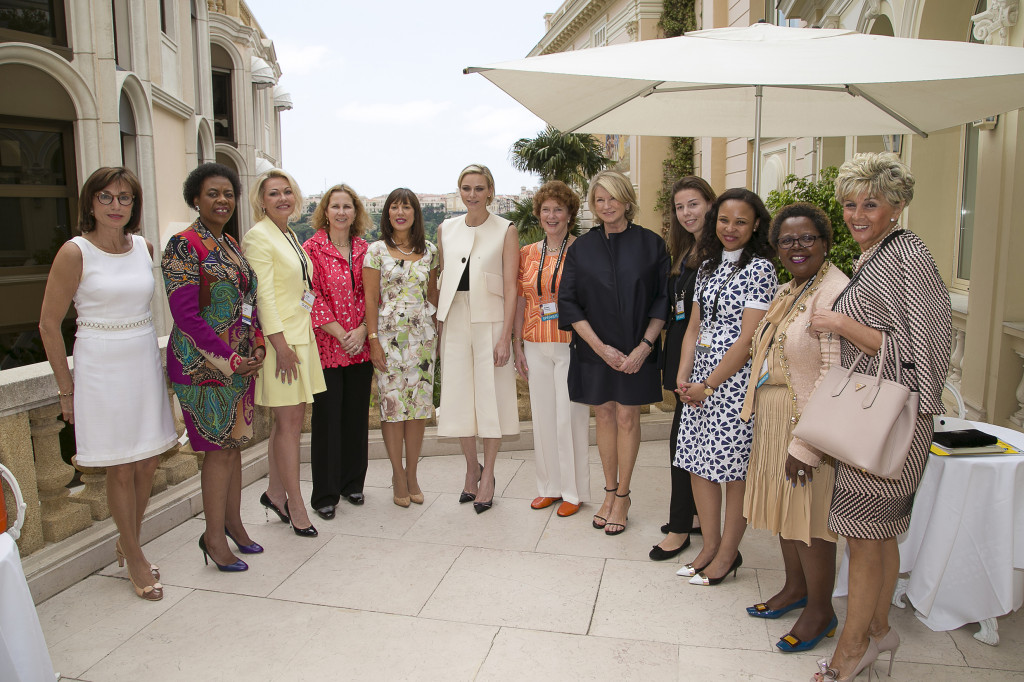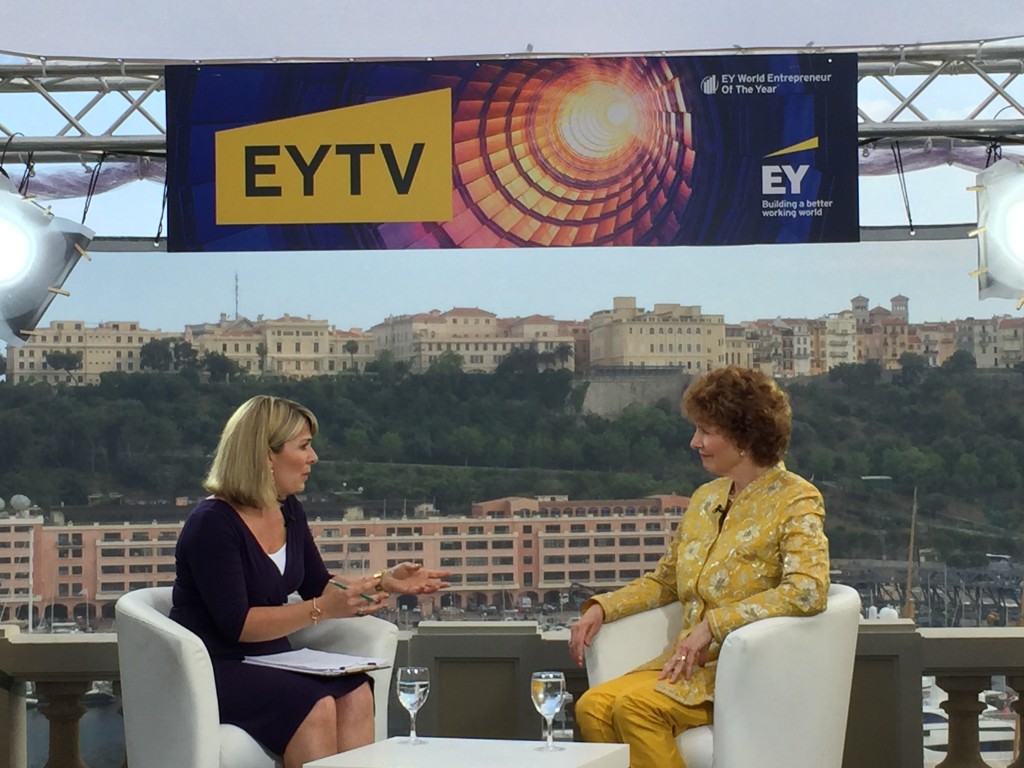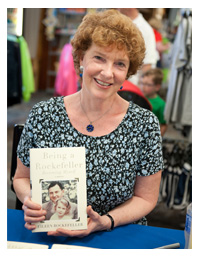 Last week I had the honor of speaking before several hundred leading entrepreneurs from around the world at a conference organized by Ernst & Young. It was held in Monaco, in the beautiful city of Monte Carlo. I talked about the role of philanthropy in keeping families together. This subject may not appear to be as universally germane as most of my posts, but I will argue otherwise by turning the subject around, from philanthropy to family.
Last week I had the honor of speaking before several hundred leading entrepreneurs from around the world at a conference organized by Ernst & Young. It was held in Monaco, in the beautiful city of Monte Carlo. I talked about the role of philanthropy in keeping families together. This subject may not appear to be as universally germane as most of my posts, but I will argue otherwise by turning the subject around, from philanthropy to family.
First, family is our earliest mirror, even if it is inaccurate. It cultivates the patterns of behavior for how we learn to show up in the world.

Second, family is the training ground for social and emotional skills. Most of us have been challenged at one time or another by feeling different from within our family. It can feel lonely. If we learn to become aware of, and own, our own reactions, listen respectfully to each other, and act inclusively, we bring valuable life-skills to other parts of our lives.
Third, family is the seedbed for learning collaboration and service. Working together makes the tasks easier, and maximizes creativity and problem solving. Service is about giving without expectation. It’s similar to unconditional love. When we do something as simple as setting tables at a food shelf, or planting trees, we are doing service. It doesn’t require money to make a difference.
Fourth, one of the ways a family can learn to work together is by giving of their time or money. We don’t need large amounts of money to make a difference. But if we pool our resources, we can make a bigger difference than on our own, and the process of deciding what to give to surfaces our collective values.
Fifth, by following or creating rituals that bring our family closer, we cultivate sustainability. This applies either to a family or its business.

There were probably 400 entrepreneurs from all around the world at the conference in Monaco. Each of them is working to make a difference in their family businesses. Some were first or second-generation leaders. Others were members of the 13th generation. It was truly awe-inspiring to know that from as far spread as the United Arab Emirates and Oman, to South Africa, Kenya, Norway, Germany, India, and Brazil, to name a few, there are people helping to improve the world through business and philanthropy. And it all began with family!



Now , this is where your voice has great strength and wisdom. Here , in this conversation, you adds alot of value. Keep up the good work . Xox H
Thanks Hinda. Nice to know you’re reading my blog! Hope to see you soon. Eileen
Hi Eileen, Thank you for sharing your thoughts on an important subject dear to your heart and the role of philanthropy in keeping families together. I am a regular reader and follower of The Rockefeller Foundation blogs. The emphasis on sustainability, resilience, helping develop important life systems and other worthwhile projects is impressive. I imagine all of your family and the president of the foundation work together to form a cohesive plan, incorporating differences
of focus and opinion. It must must be that all of the new generations need to work together as a
TEAM and the challenge must be high minded, qualitatively and analytically. WHAT NEXT??
My husband has been the “right arm” for many ambitious entrepreneurs. I have seen with my eyes wide open that the mercurial behavior of an entrepreneur is serious and can have negative effects on employees’ families.. The risk taking, uncertainties and constant ups and downs might make “Alice In Wonderland” stay clear of the mirror…Even with strong U.S. accounting guidelines, the room for misdoings exists.
I agree that entrepreneurs need to be risk takers. It’s risky to start anything, but most times worth the effort.
Eileen, I hope you observed interest in mental health investment among entrepreneurs and philanthropists. Although infectious diseases and starvation get the attention they deserve, even though depression is ranked by the WHO as the largest cause of disability worldwide, it gets scant attention as a global health issue.
Coincidentally, I talked a few weeks ago at the Cleveland Clinic about mind/body interactions and their impact on health and healing. At this conference the focus was more on family, but the issue of coping with differences came up, which obliquely includes depression. I’m not surprised the depression is the largest cause of disability worldwide. As you know so well, from your profession, any feeling that gets tamped down too long, leads to depression. How can we give the caregivers of our children the support they need to really hear and see the needs of our future leaders? I believe this is where it all begins, and it turns out that Howard Schultz, the founder and CEO of Starbucks, who also spoke, agrees with me! Thanks for writing.
Well said Eileen! Thank you for bringing it home to all of us!
You’re welcome! It was an inspiring time.
So excellent Eileen! Thank you so much for your constant inspiration!
While my family on both my mom and dad side come from struggle and the sharecropper lifestyle of The Mississippi Delta, that struggle instilled in me a compassionate heart for human suffering. I am determined to be the first generation of philanthropists in my family! (Smile)
I was blessed to attend the recent funeral services for The King of The Blues, B.B. King in his hometown of Indianola, Mississippi – which is also my dad’s birthplace. It was a moment of irony – as The B.B. King Museum & Delta Interpretive Center – where my husband and I celebrated our marriage with a reception two years ago – was now the final resting place of the greatest ambassador Mississippi has ever known.
From poverty to prosperity, from the Mississippi plantation to international icon – Mr. King received numerous humanitarian awards because he never forgot where he came from and was always giving back. For me it was proof that no matter how “big” we become what we are remembered by is what we give in service to others!
Thanks for sharing!
Thank you Iman, for your own light of inspiration in the world. We all need to remember our roots, and do our best to grow towards the light in each other. Together we can make the change for a better world.
Hi Eileen,
I liked the aspects of your point that, we are sculpted by how our inner family social environments work and the ethical systems our parents present us. I think it is very significant to the success of the great dynasties. I think it wasn’t until I saw a list of the world’s oldest companies and saw the shear size of the list, with over 5,000 companies over 200 years old and it hardly took into account the old families of India, The Middle East and Asia.
It was very inspiring to see such a huge list, because one could see that they would have to be based on solid family structures and ethics. Historically too, it is interesting to see the family dynasties which last and the ones which don’t, often they splinter into different directions.
I liked too, how you mentioned how, even in a successful family, the younger ones can feel isolated, and I think in an interview you had mentioned this and your dad did mention it in his memoirs, being younger than his brothers and at times feeling left out due to age difference, at least during his younger years, it seems to balance out by the 20s, at least I tell my sons it will.,
My youngest one too is stuck 5 years behind the older brothers too and it has been an issue to keep him positive and not feeling isolated, so I am having to adjust for that and your last blog brought up a great point, which we’ve talked about from other angles, but I will pass on, which is to also feel “a part” of the greater Universe, of God, if you will. I think this aspect goes well with the “organized” aspects of faith and one’s belief in a greater order or power or at least a positive, giving view of life and I think this view in general does make them feel less alone in the universe.
These good family ethics also seem to lead to your later points of “contributing” into that greater system and the satisfaction that it brings, which is wonderful and yes, even without money, volunteering is “free”, I find it very satisfying and my kids too have begun to enjoy it with community and school etc…anyone can do it, rich or poor and I can see my kids feeling of satisfaction and pride, of having helped.
Wonderful to visit Monaco, amazing architecture! The Grimaldis too, are a great family, with a fascinating history and have given back a lot to global Human Culture and society. The new King seems like a forward-thinking leader too and nice man. I would think that they would have had to have had very strong family leadership, ethics and guidance to make it this far.
It seems you are really good at research! Bravo for all you have gleaned. May it be of use in your purpose in life.
Gorgeous redhead wows Monaco!
Way to go Eileen!
What a tiger!
Thanks Cynthia. Given you are such an irresistible fan, I’m sending you the link to the 5-minute TV interview I did after my talk in Monte Carlo. It gives the essence of what I said to the entrepreneurs.
http://bcove.me/8a7u6imw